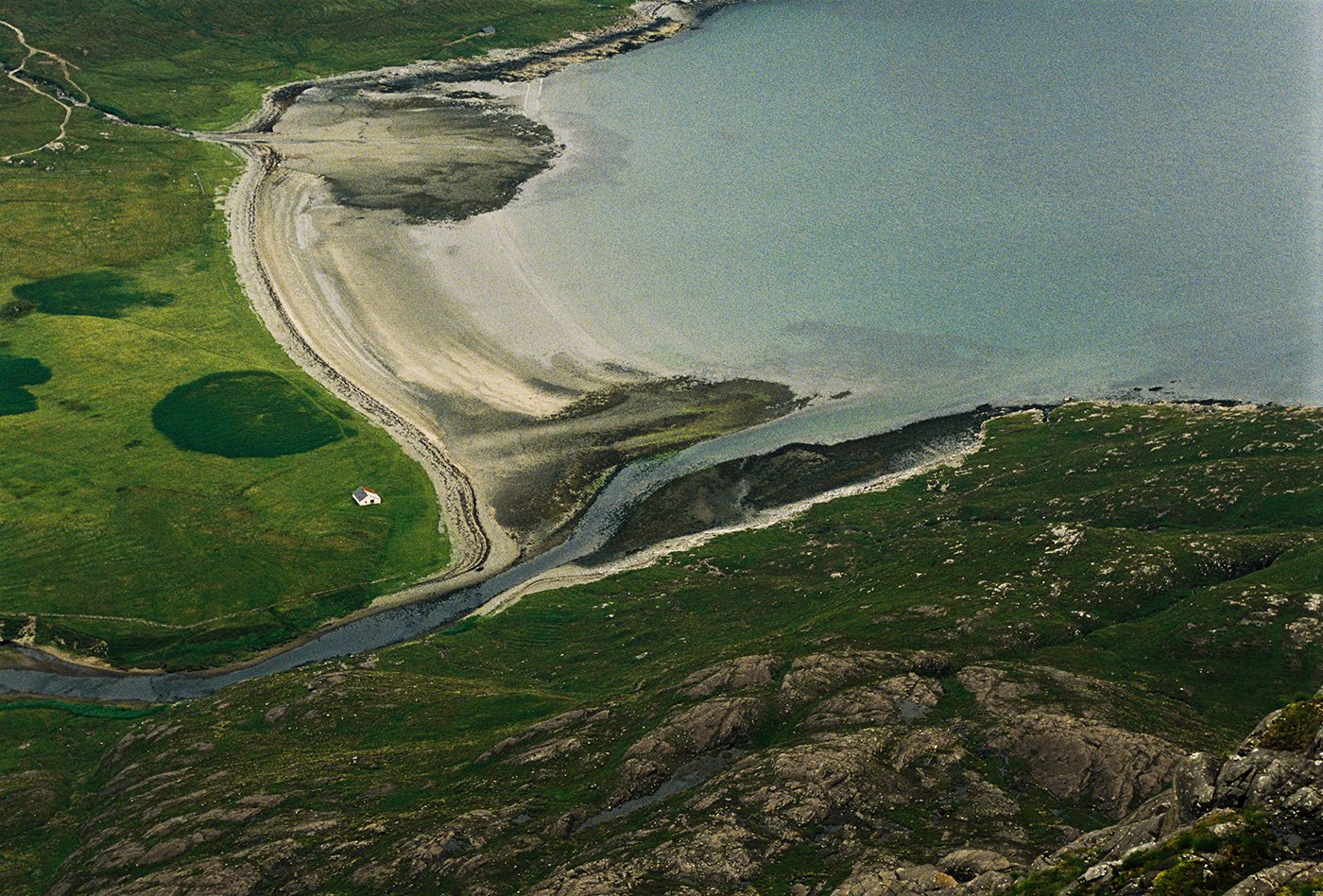II/II Estuarine Belonging
Words and analog photographs by Niels Devisscher. Originally published in the book “Nostos — Voices for Our Journey Home” available for purchase here.
Follow the river downstream until you reach the foot of the hill and enter the grassy plains. There you will find a curved stone bridge. Cross it. Can you see the small, white house at the edge of the estuary? Look out for a candlelit window encroached by the settling blues of night. This is the place I call home.
Let us walk along the shore. I tell you that I have been dreamt to live in the estuary — at the ecotone between the freshwater river and the saline ocean. It is the hotbed of creation, where new life comes into being first. It is here that one body flows into another, and boundaries between self and other dissolve. You look at the straight lines you have drawn in the sand behind you, with the stick you have held onto for too long now. You smile, as you watch them fade with every curling wave.
For hours, we share stories of exile and homecoming. Hunched over, you glean over the rocks, the shells, and the thousands of animal bones and skulls laid out across the beach. They remind you of the great extinction that happened two decades ago, but from which neither you nor I have fully recovered. Loss has its way of marking us. We carry loss with us, and it carries us — sometimes deeper within, but if we choose to, it stretches us larger outwards. But leaving it never does. Like the image of the robins wailing in your dreams; like the image of the robins dropping from the sky like fallen angels during drought; like the image of a newborn robin reappearing for the first time, and how you cried and laughed at the mercy of it all.
You urge me to look upwards. The strawberry moon rises behind the black mountain ridges. I can see the tiny hairs on your neck rise. In the estuary, the river imagines what it’s like to dance with the moon as she surrenders to tidal forces. The ocean experiences herself walking deep into the land, meandering through forests, along towns and villages, and into faraway mountain caves. Newborn babies are bathed along her banks, and animals drink from her life-giving waters. It is in the eyes of the other that we see ourselves anew.
Where do you end and I begin? We are estuaries, constantly negotiating our identity. Like the houses we build, we try to define what is inside and outside. You tell me that within your home, there is a sense of comfort and control, different from the untamed world beyond your garden fences. Your home offers private relief from an open-ended world, riddled with chaos and uncertainty. But stay there too long, and the walls begin to enclose you. Ivy starts overgrowing your windows. Sometimes, the harsh waves find ways to make themselves known to you without prior announcement. Other times, the rivers and the deer lose their voices, as they did for you. But I am glad you are here with me.
Leave the door ajar so that the changing winds of the vast ocean can always reach you.
That night, at the edge of the estuary, we made a bonfire, sang the old songs, and danced awkwardly. We swam in the ocean naked. We drifted on our backs like seaweed, carried by the flowing tide as we drew new constellations in the night sky.
And in your dreams, you saw the ones with no names, dressed in black gowns, waiting for you there by the foot of the deep hills, and you heard the river and the stones and the robins sing in polyphony, inviting you to join in.
And so you did.


